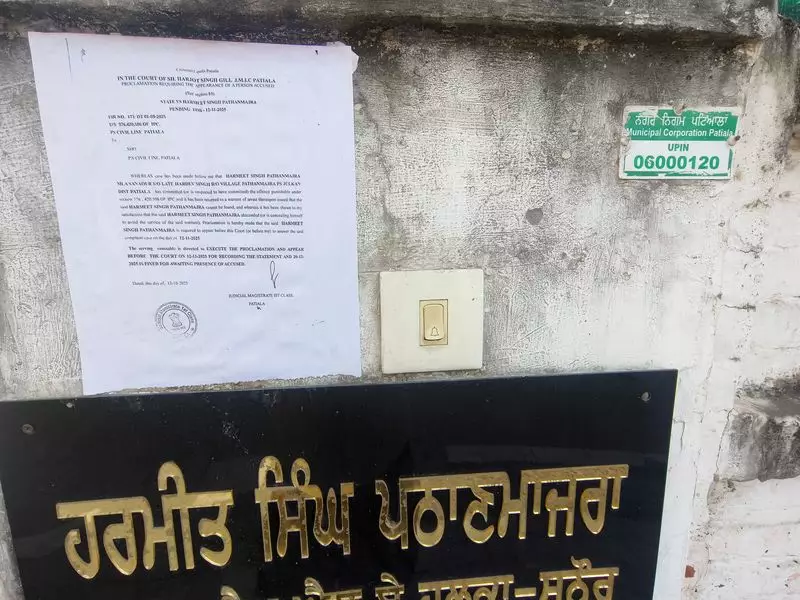
In a significant legal development in Pathankot, Punjab, a local court has taken the unusual step of affixing a legal notice directly at the residence of a former village sarpanch in Pathanmajra. The action comes amid an ongoing property dispute that has captured local attention.
Court Takes Direct Action
The judicial notice was prominently displayed at the entrance of the former sarpanch's house in Pathanmajra village, marking an escalation in the long-standing property ownership case. This direct approach by the court authorities underscores the seriousness of the legal proceedings and the challenges in serving conventional notices to the involved parties.
Background of the Property Dispute
Sources close to the matter reveal that the case centers around contested property rights that have been under judicial scrutiny for several months. The former sarpanch, who previously held a position of authority in local governance, now finds himself at the center of this legal confrontation that has become a talking point throughout the region.
Legal Implications and Next Steps
The court's decision to physically post the notice indicates that previous attempts to serve legal documents through conventional channels may have been unsuccessful. This method ensures that the judicial process can move forward, giving the respondent official notification of the proceedings against them.
Legal experts in Punjab note that such measures are typically employed when there are difficulties in establishing direct communication with the parties involved in a case. The notice outlines the next steps in the legal process and provides a timeframe for response from the former sarpanch.
Community Reaction and Impact
The development has sparked considerable discussion among Pathanmajra residents and in wider Pathankot circles. Many see this as a testament to the judiciary's determination to ensure due process is followed, regardless of the social or political standing of those involved.
As the case progresses, legal observers are watching closely to see how this unusual method of service will impact the trajectory of the property dispute and whether it will set any precedents for similar cases in Punjab's judicial system.





